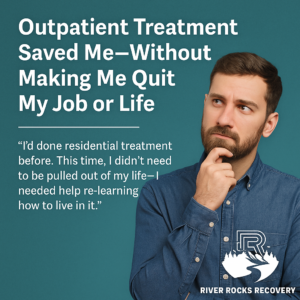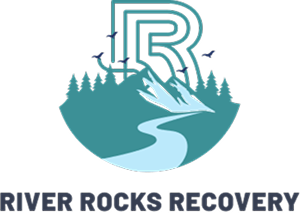I didn’t plan to relapse. No one ever does. But 93 days after getting sober, I found myself in a parking lot with a bottle in my hand and silence on the other end of my sponsor’s phone.
That moment unraveled me.
Not because I had a drink. But because I believed—deep down—that one slip erased all the work I’d done. I told myself I’d failed. That I’d blown my only shot. That maybe I wasn’t built for this.
But here’s the truth I wish someone had whispered to me that day: relapse isn’t the end of your story. It can be a turning point. And for me, that turning point was an outpatient treatment program in Ohio that respected my reality—and helped me find myself again.
The Shame Almost Kept Me From Reaching Out
When you relapse after making it past 90 days, it hits differently. There’s a weight to it. You’re not a newcomer anymore. You’ve sat in meetings. You’ve done the steps. People have cheered you on.
So when it falls apart, the shame doesn’t whisper—it roars.
I told myself things like:
- “You should know better.”
- “No one’s going to take you seriously now.”
- “You’ll have to start over from scratch.”
And maybe worst of all: “You don’t deserve another chance.”
But the thing is, shame lies.
What I really needed wasn’t punishment or a fresh start—it was support that met me in the mess. Not a reboot, but a recovery that respected where I’d already been.
I Still Had a Life—And I Didn’t Want to Walk Away From It
I was working full-time. Paying rent. Trying to hold onto a few friendships I hadn’t already damaged. And I didn’t want to lose all that just to get better again.
I’d done residential treatment before. It was right for me then. But this time? I didn’t need to be pulled out of my life—I needed help re-learning how to live in it.
That’s what outpatient treatment gave me. River Rocks Recovery in Ohio didn’t ask me to vanish for 30 days. They asked me to show up—with honesty, with effort, and with whatever I had left.
And somehow, that felt possible.
What Outpatient Looked Like for Me
I joined the intensive outpatient program (IOP), which meant three evenings a week of group therapy, plus one-on-one counseling. I kept my job. I kept my routines. But I also had structure—real, steady, honest structure.
Some days, I came to group tired. Some days, ashamed. Some days, angry that I had to be there at all. But I kept going.
Because these were my people.
Some had never relapsed. Some had. Some were just holding on hour by hour. And none of them judged me for being back in the room.
If anything, they nodded. Because they knew.
“When I walked back in after my relapse, I braced for the shame. What I got was a chair, a welcome, and a reminder: you’re not done unless you stop coming back.”
– Outpatient Client, 2024
Healing While Living: Why Outpatient Worked
I learned how to manage stress in real time—not in the bubble of a retreat, but in the actual chaos of work emails, traffic, and awkward family dinners. I practiced speaking up instead of stuffing everything down. I built tools instead of just white-knuckling my way through.
My counselor helped me name patterns I hadn’t noticed the first time around. My group helped me stop running from my own story. And together, they helped me believe that relapse didn’t erase my recovery—it deepened it.
Because this time, I knew what was at stake. And I knew what was possible.

If You’re Reading This After a Relapse…
Let me say this clearly: You are not starting over. You are starting again—and that’s a very different thing.
You already know more than you think. You’ve already fought battles no one can see. And you’re still here. That counts.
Maybe you don’t want to go back to inpatient. Maybe you can’t. That doesn’t mean you’re out of options. An outpatient treatment program, especially one like River Rocks Recovery in Ohio, might be exactly the bridge you need.
Not a detour. Not a delay. A bridge.
Why River Rocks Recovery Felt Different
They got it. The staff didn’t treat me like a failure. They treated me like someone in process. Someone with value. Someone worth showing up for.
And that made it easier to show up for myself.
They asked what I needed—and listened. They adapted the care plan to my schedule. They didn’t talk down to me. They talked with me.
That level of respect changes things. Especially when you’re feeling like you don’t deserve much of anything.
Real Support, Real Life
Outpatient care didn’t save me by being easy. It saved me by being real.
It asked me to show up even when I didn’t feel like it. It gave me space to feel what I was feeling—without getting stuck in it. And it reminded me that recovery isn’t about being perfect.
It’s about coming back.
Frequently Asked Questions About Outpatient Treatment
What is an outpatient treatment program?
An outpatient treatment program provides structured therapy and support while allowing you to live at home and maintain work, school, or family responsibilities. It’s ideal for people who need flexibility but still want accountability and clinical support.
Can outpatient treatment really help after a relapse?
Yes. Outpatient treatment is often a powerful option after relapse, especially if you’ve already completed a residential program in the past. It offers continued care, structure, and community without requiring a complete disruption of your life.
How do I know if IOP is right for me?
If you’re struggling but still functioning in your day-to-day life—and you’re ready to do the work—IOP might be a great fit. You’ll get support, therapy, and community, but you won’t have to leave your job or family to do it.
Does River Rocks Recovery offer IOP in Ohio?
Yes. River Rocks Recovery offers a compassionate, structured outpatient treatment program right here in Ohio. Whether you’re returning after a relapse or starting fresh, their team meets you with honesty, respect, and flexible support.
What if I’m embarrassed to reach out again?
You’re not alone. Many people feel awkward or ashamed about coming back after a relapse—but treatment centers like River Rocks Recovery understand. You won’t be judged. You’ll be welcomed.
You Don’t Have to Disappear to Get Better
Call River Rocks Recovery at (888) 905-6281 to talk about whether outpatient treatment is right for you. You don’t have to start over—you just have to start again.

